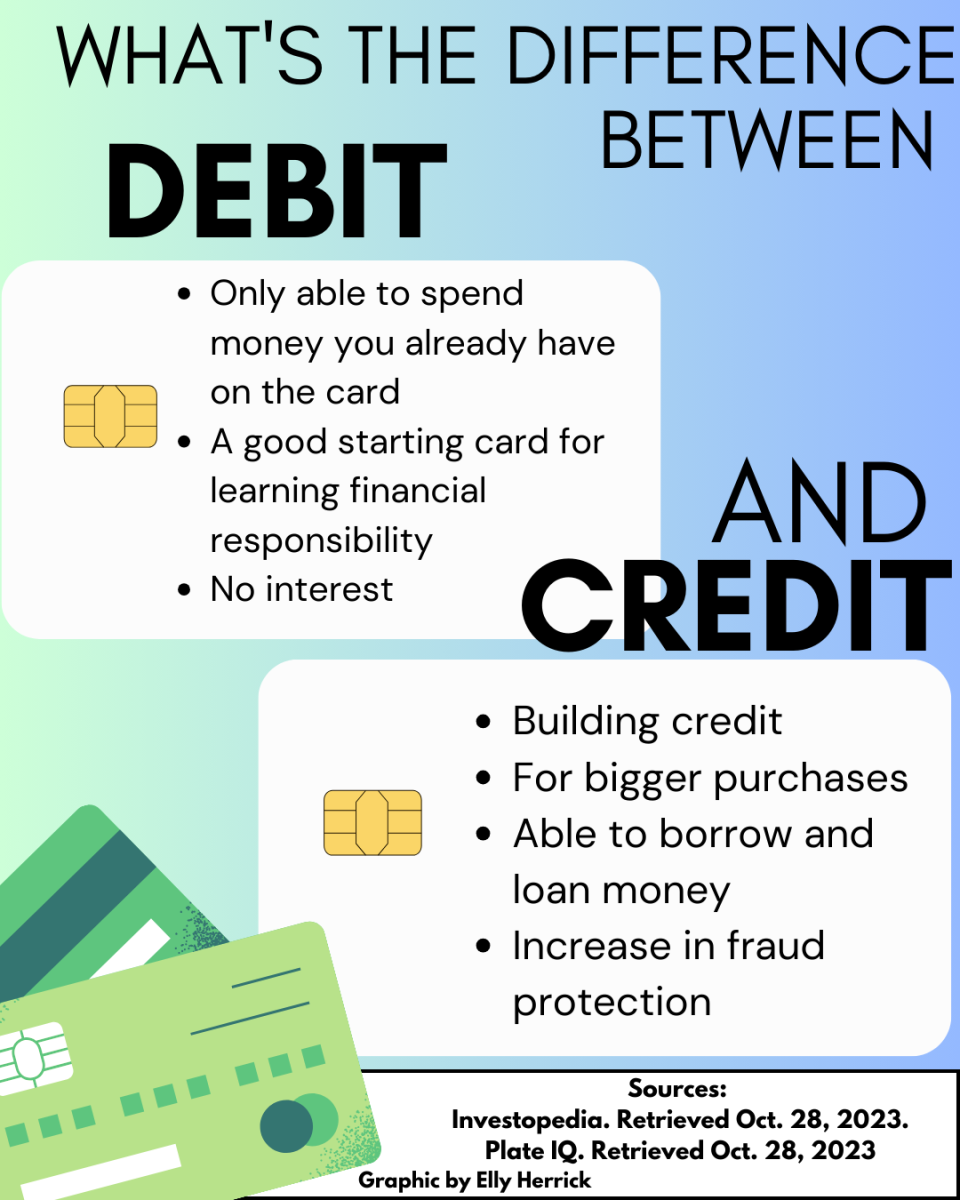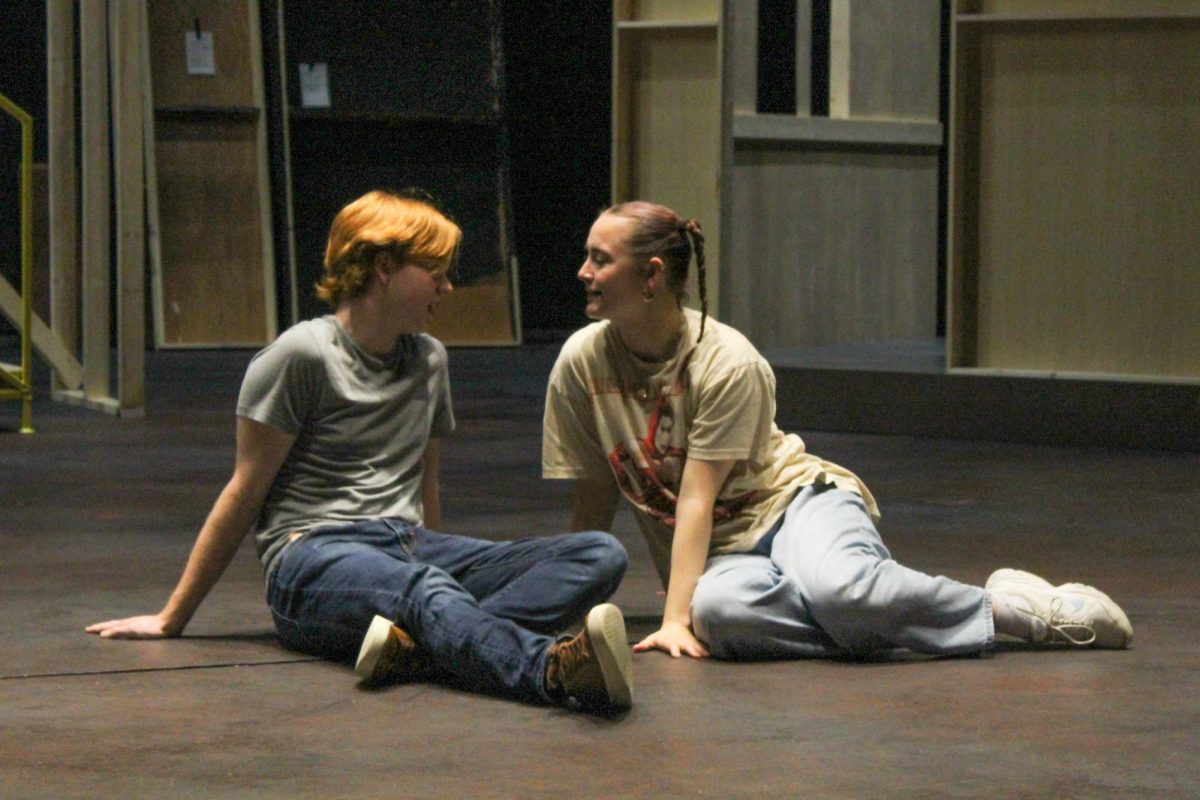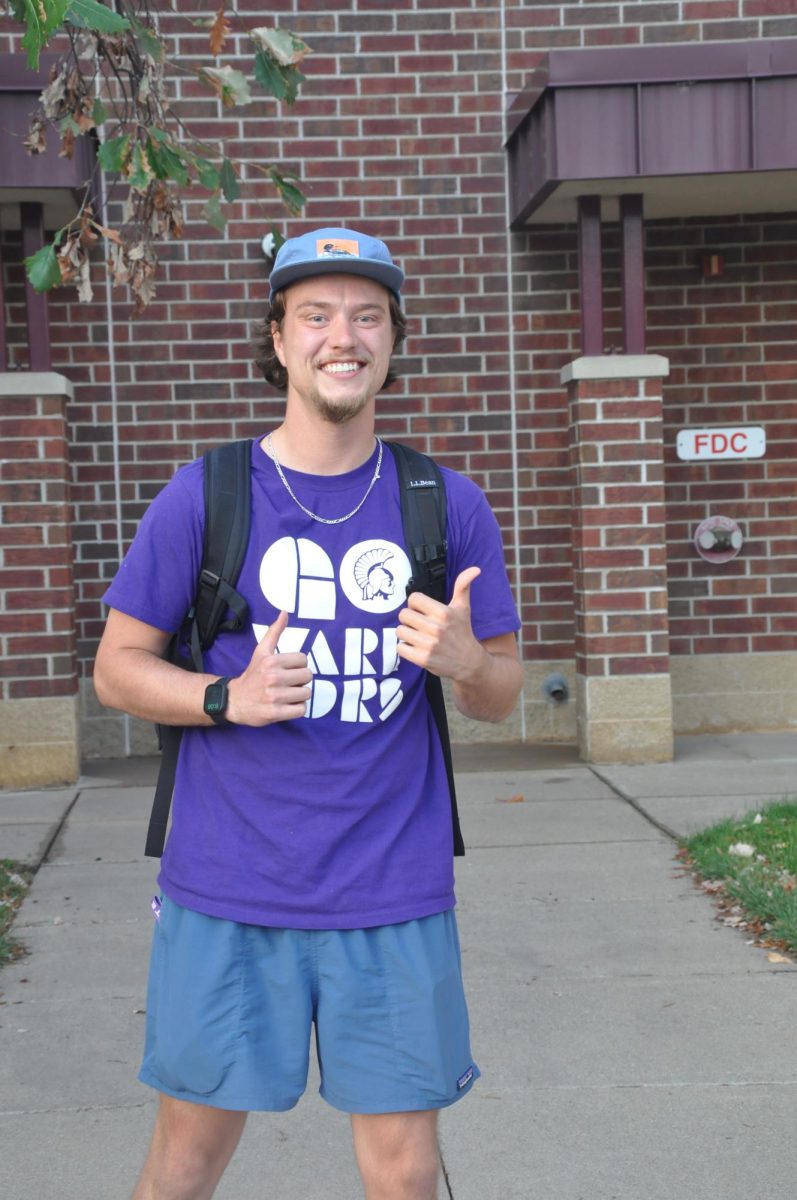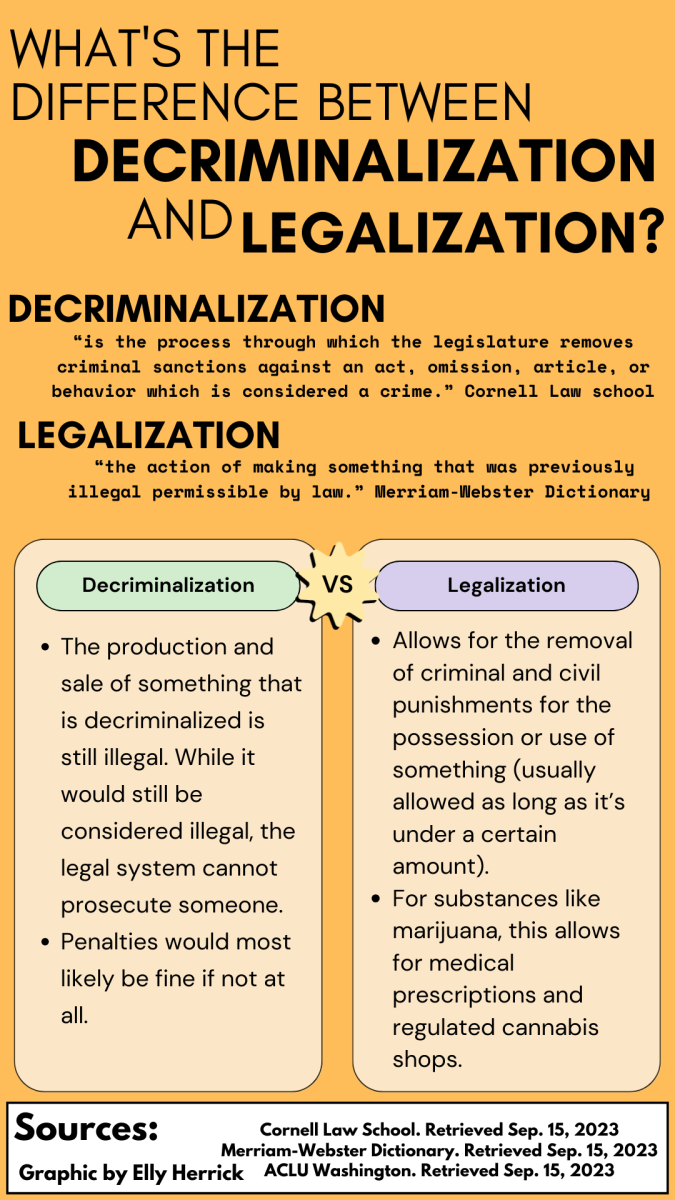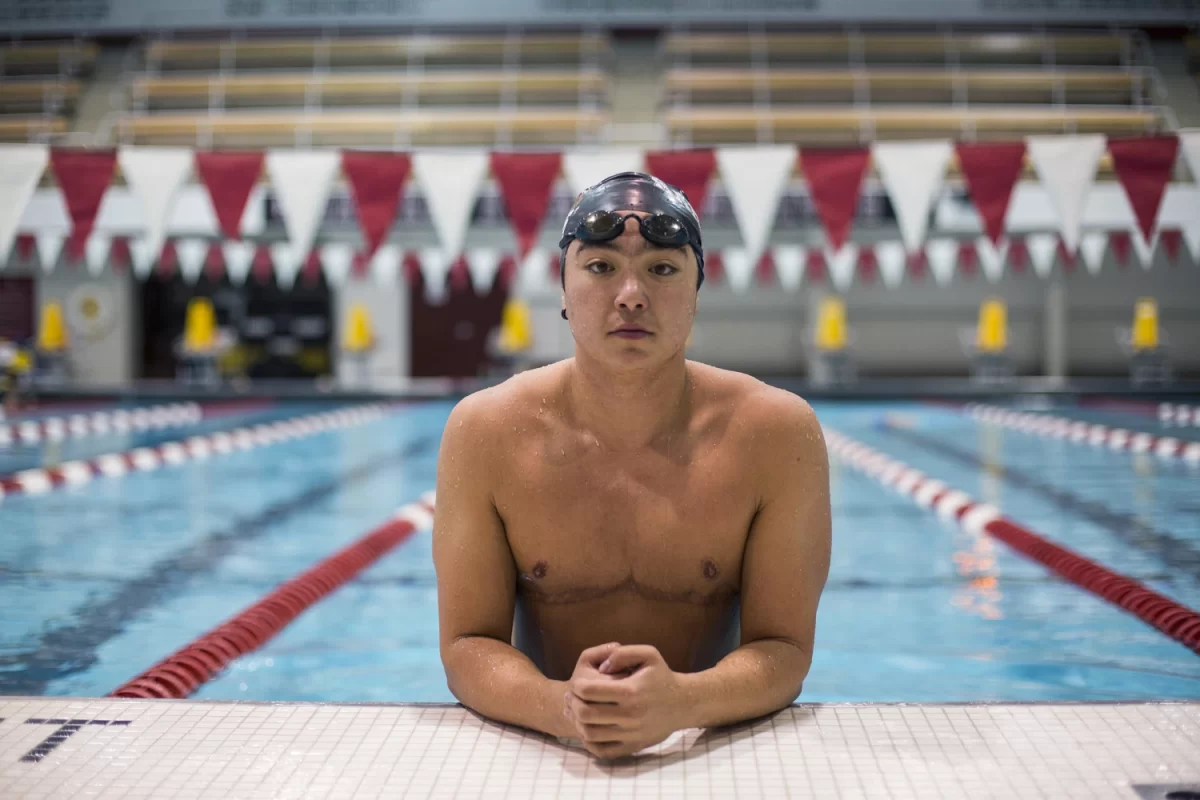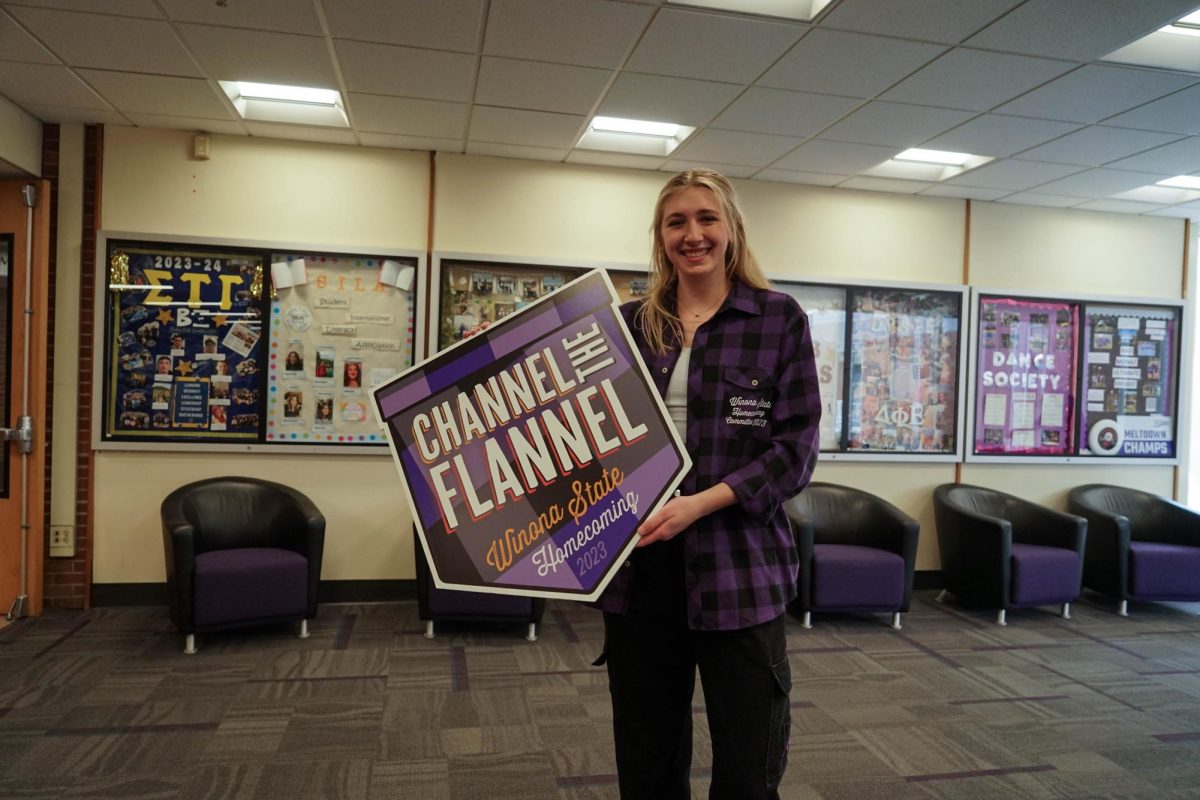Hannah Jones/Winonan
Dr. Ralph Townsend, dean of the college of liberal arts at Winona State University, remembers having taken a French literature class in his undergraduate days at the University of Maine.
Because he attended a liberal arts college, Townsend was required to fill a foreign language requirement in order to graduate—whether he wanted to or not.
And, frankly, he didn’t.
“I got it done,” he said, shrugging at his audience of Winona State students and professors at last week’s Athenaeum presentation: “What Do We Mean by Liberal Arts?”
The presentation on Wednesday, Jan. 30 kicked off a new semester of holding the Athenaeum series on the second floor of the library.
This program focused on creating a space to have an often neglected conversation among educators: what does “liberal arts” mean, really, and why do we need it?
With feathery snow drifting steadily down the window behind Townsend, attendees sat and listened as the he revealed what that French literature class and all the others that constituted his broad, varied education meant to him. Although he was unenthusiastic at the time, Townsend has come to realize the importance of classes like the ones he had to take to fill his distribution requirements.
“Liberal arts literally changed my life,” he said. “It took me places I never expected to go.”
Liberal arts is a slippery concept with a general title, making it difficult to define, but Townsend pointed out a few of its key characteristics: a relative importance on broad preparation, less emphasis on the student’s major or professional path, and a heavy involvement with writing.
Furthermore, the whole mindset behind liberal arts differs from other colleges in that the purpose of education is not so much job preparation, but rather a challenge.
Liberal arts students are supposed to extend themselves, broaden their horizons, try new things and learn about the world as well as about themselves.
Again, slippery topics to define and quantify.
Nonetheless, Townsend and the rest of the liberal arts department can testify to the prominent role this sort of education takes in the lives of students, during education and beyond.
Winona State, Townsend commented, has an underappreciated liberal arts program. Outsiders usually think of the school as a nursing, education or engineering college, regardless of the prominence of the liberal arts department within the school.
It is common, Townsend noted, for the public to impose stiff “professional missions” on education. In a country with a tough job market and a sagging economy, it’s difficult not to think this way.
In order to become successful in so difficult a workplace, students often receive advice telling them to pick stable, easy-to-find careers and begin training for them as soon as possible: doctors, technicians, teachers—plans with job titles built in are usually preferable. But what do we lose when we treat education solely as job training?
Dr. Chris Buttram, a member of the English department, equated liberal arts not only to a style of education, but an “attitude toward living,” involving “curiosity, boldness and more.”
Liberal arts is all about exploration: studying abroad, learning languages, music and art, appreciating the works of great masters, broadening, deepening, stretching students’ horizons. Townsend was adamant that the study abroad program especially should come to the forefront of students curriculums.
His daughter, who attends a liberal arts school in Vermont, is not just encouraged, but required to spend at least one semester her junior year in another country. The experience is simply too important to the school’s values to omit.
“The message we send our students about what’s important to education does influence what they do,” he said.
When students base their education around practicality, around finding a job, earning a stable income and getting a promotion, they do so because society has told them that it is important.
Gathered on the second floor of the library, professors and students alike discussed what they, as a college, thought to be important—a set of values they had in common—understanding why they were there and what needed to be protected.
Contact Hannah at [email protected]




























































